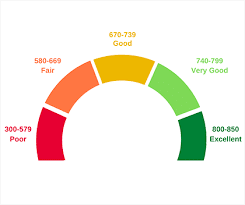Gross income is the amount earned before taxes, benefits, and other payroll deductions. This post tells more about how to calculate gross vs net income.
Just relax and read through for proper understanding.
Is Gross Income Before Taxes Or After
Gross income is the total profits before taxes and other deductions. Net income is what remains after taxes are removed. After taxes and deductions, net income is shown on a paycheck. Unless exempt from taxes and has no deductions, net income is always less than gross income.
How Gross Income Works
A paycheck often includes hourly wages, salary, commissions, and bonuses. Other forms of gross income include annuities, alimony, pensions, capital gains, rental income, royalties, and self-employment. These sources of income are often only partially taxed. Other taxable sources of gross income include:
- Alternatives to remuneration
- Profits from a business
- Dividends
- Gainings
- Mineral or gas rights
- Repayment of debt
- Income from a deceased or an estate or trust interest
- Interest from bank accounts, CDs, etc.
- Online or offline sales
Inheritance, municipal or state bonds, workers’ compensation, and life insurance proceeds are examples of nontaxable income.
Employers deduct state and federal income taxes, Medicare, and Social Security taxes from your paycheck. Business owners, self-employed, and independent contractors/freelancers receive remuneration as gross income and are responsible for paying taxes. Gross income is determined as gross revenue minus cost of goods sold (COGS) and is expressed as a percentage.
How Earnings Affect Your Budget
When planning your budget, determine whether to employ gross or net income. Since net income is your real take-home pay, it may be advisable to focus on that number while constructing a budget.
After calculating your take-home pay, sum it up for a month. Most bills require monthly payments, so remember this number. Once you know your monthly income, start documenting your monthly expenses. Begin with your fixed costs, such as rent or mortgage, utilities, student loans, and other monthly obligations. Then add up your variable costs. These include your monthly grocery bill, car petrol, credit card bill, and any other variable charges.
Add your fixed and variable expenses to get your monthly spending total. Subtraction of entire monthly net income or take-home pay You can save or spend what’s left. Save that money every month or use it to pay off high-interest debt. If you have no money left or the amount is negative, you should consider decreasing costs. Examine your expenses to see where you may save money.
Other Tax Deductions
Depending on your employer’s perks, further deductions may be made from your gross income. For example, you may pay your health, life, or long-term care insurance premiums through your employer, who would deduct them from your gross salary.
Also, contributions to a 401(k) or 403(b) come out of your gross income.
Other Gross Income
You may have more gross income than just your paycheck. Before taxes, your gross income includes items like tips, side jobs, and even interest received on your bank account. For example, $100 in savings account interest is $100 added to your gross income.
Payroll Taxes
Before you get your paycheck, many taxes are deducted from your gross income. These include federal and state income taxes, which vary based on income, and FICA taxes, which are fixed percentages of income.
Then there’s the matter of municipal taxation. For example, in Kansas City, 1% of your gross income is deducted to satisfy the earnings tax.
Why Are Payroll Taxes So High & Where Do They Go To?
Federal, state, and municipal taxes fund everything from national defense to road construction. Social Security and Medicare payments help fund one of the most vital US retirement programs. By the age of 65, about 85% of Americans rely on Social Security for retirement income and Medicare for healthcare.
How To Calculate Gross Income
Gross income is your entire pay before taxes and expenses. As a business, your gross income is your leading profit. Your gross income will also help you plan and save for the future. It’s also easier to calculate than net income, which includes taxes and other deductions.
What Goes Into Gross Income
Gross income is the total of all earnings over a period of time. Income from a side income or contract work is also included. This can include dividends, interest, and capital gains, depending on the circumstances.
Taxes are the one thing you won’t need to factor into your gross income. Taxes are irrelevant because gross income is pre-tax. Earnings before taxes or other deductions are gross income. This number affects your taxes. Before taxes and other deductions, gross income is your total earnings before taxes and other deductions.
The Importance Of Knowing Your Gross Monthly Income
When applying for a home or vehicle loan, or creating a budget, knowing your monthly income is critical. Most lenders want to know your income to assess your creditworthiness.
Knowing your monthly gross income can also help you save for retirement. If you’re attempting to figure out how much to put into your retirement account each month, knowing your gross income will assist.
Your net income is also vital. Net income can be thought of as the monthly “spendable” cash that arrives in your bank or savings account. Your normal after-tax expenses, both fixed and discretionary, will come from your net income.
Calculating Annual Salary Gross Monthly Income
Calculating an annual wage is simple. Similarly, gross income is the sum earned before taxes and other deductions, which is commonly expressed as an annual salary. Divide your annual wage by 12 to get your annual salary.
Calculating Hourly Gross Monthly Income
The calculation for hourly employees is more complex. To get your yearly income, add your hourly wage by the number of weeks you work, then divide by 52. Divide your annual gross income by 12 to get your monthly payment.
If your hours vary from week to week, provide your best guess. If you have a recurring bonus or commission, you can normally add it to your gross monthly income. The most typical method is to split your annual overtime salary (or bonus or commission) by 12. This amount is applied to your gross monthly income based on your base pay.
Gross Income For A Business
Gross profit is the company’s gross margin for the year before deducting indirect expenses, interest, and taxes. It is the profit made by a corporation after deducting the direct costs required in producing the goods supplied.
Direct costs include labor, production equipment, supply, raw material, and shipping costs. Taxes are not subtracted since they are not tied closely to production or selling. The formula for calculating a company’s gross profit is as follows:
Gross Income = Gross Revenue – Cost of Goods Sold
What Does Gross Income Mean?
Gross Income is known by the employer when the job is offered. This gross salary includes wages, commissions, tips, bonuses, and any other economic incentives earned as part of the wage, and it serves as the basis for all income calculations.
Because the gross wage is pre-negotiated in the job contract, it does not include deductions or taxes. These deductions are later applied to the gross compensation to comply with federal or state rules; or to compensate for any financial obligations made by the employee.
The Gross Income figure allows the employee to compare their pay to the market average to evaluate if they are competitive and have rewards. However, gross income is useful to gauge an employee’s ability to pay and take on debt.
Employers can calculate gross income quarterly, monthly, weekly, or daily. This is because gross income is required to calculate taxes and deductions, especially if the ratio is dependent on the employee’s gross wages.
An individual’s gross income (or gross pay on a paycheck) is their total salary from their employer before taxes or other deductions. This encompasses all sources of revenue, not only cash but also property or services obtained. Gross annual income comprises all sources of income and is calculated before taxes.
Gross Income vs Net Income
Depending on the situation, gross and net income indicate different things. In general, gross income is the total of your salary, while net income is the amount left over after deductions.
The words gross and net income are frequently useful in personal and commercial finance, as well as taxation. It’s important to understand how gross and net income differ in each case.
However, gross income is usually higher because it includes all income before deductions. After deductions or withholdings, net income is usually the smaller sum. (frogbones)
Now let us look at what both of them mean separately.
What Is Net Income?
Gross income is your annual revenue before expenses. Consider it your service profit the total of all client billings before any deductions, taxes, or withholding.
How To Calculate Gross Income
Add your total client billings for the year to get your annual gross income. For example, if your client billings reach $90,000, your annual gross income or total gross compensation is $90,000.
Why Is Gross Income Important
Gross income can help you measure your company’s revenue potential and compare year-on-year performance. You can identify which clients and projects bring in the most and least revenue by looking at your various revenue streams. This knowledge may help you decide where to focus your efforts and set your business’s future goals.
What Is Net Income?
Net income is the profit after expenses and deductions.
How To Calculate Net Income
To calculate net income, remove your gross income from all business expenses (marketing, advertising, travel, office, tax payments, etc.) and any applicable deductions (home office, retirement plan, legal and professional fees). To calculate net income, we utilized our bill rate calculator to calculate an example of common business expenses.
Why Is Net Income Important?
Net income might help you assess your company’s health. For example, if your gross income consistently exceeds your net income, you may want to review your spending to see what you can cut or reassess.
What Affects Net Income
#1. Federal Income Tax Withholdings
The federal income tax bracket system calculates tax liability based on income.
#2. Withholdings From State Income Tax
Many states, like the federal government, have progressive tax brackets, but some do not. Some cities also have their own income tax.
The Social Security tax is 6.2% and Medicare is 1.45%. Employers must match employee contributions under the Federal Insurance Contribution Act (FICA).
#4. Wage Garnishments
A court can require employers to deduct a percentage of an employee’s compensation to settle debts. Some garnishments include credit cards, student loans, and back tax debts.
#5. Health Insurance Costs
While employers normally cover the majority of health insurance rates, employees frequently contribute to their own coverage.
#6. Retirement Savings
Some retirement plans, including 401(k), deduct contributions from gross pay.
#7. Form W-4, Employee’s Withholding Certificate
In their first job, employees may fill out a W-4, which asks about their filing status (single, married, head of household), dependents, and other income sources. Amount of federal income tax deducted each paid month.
Identifying Gross vs Net Income
Knowing how to calculate your gross vs net income is essential to managing your personal finances and running a successful small business or self-employed. It can also help you decide when to raise your prices, whether certain expenses are in need, and which forms of income, projects, and clients to focus on.
The distinction between gross and net income might influence personal and business goals and actions. As a business, gross income can show you your revenue year over year and how your business is doing. However, net income shows you how much you make after expenses are deducted. If your net income is below expectations, consider reducing spending.
The amount of your taxable income after these deductions and adjustments is called your adjusted gross income, or AGI.
Does Gross Income Mean Before or After Taxes?
Gross income is the total profits before taxes and other deductions. Net income is what remains after taxes are removed. After taxes and deductions, net income is shown on a paycheck. Unless exempt from taxes and has no deductions, net income is always less than gross income.
What is your gross income?
Gross income is your annual revenue before expenses. Consider it your service profit the total of all client billings before any deductions, taxes, or withholding.
Does Gross Mean After Tax?
Yes, gross comes after tax is paid. Gross profit is the company’s gross margin for the year before deducting indirect expenses, interest, and taxes.
Is Your Gross Income on Your W-2?
Because of the different net earnings deductions, the gross pay is typically not included in Form W-2. Instead, the employee’s gross income can be found on his or her final paycheck for the year.
Does Before Tax Mean Gross?
Gross income, often known as gross pay when it appears on a paycheck, refers to a person’s entire earnings before taxes and other deductions. This comprises revenue from all sources, not only employment, and is not limited to cash income; it also includes income from the receipt of property or services.
Why Do Lenders Look at Gross Income?
Gross income is the total amount of wages, salaries, interest payments, and other earnings before deductions such as taxes. Gross income does not account for taxes and other deductions, whereas net income does. When evaluating the monthly payment amount you can afford, lenders consider your gross income.
Does Gross Income Affect Credit Score?
Your salary has no direct effect on your credit score, but it does affect your ability to repay credit card debt, which in turn influences your credit score. A credit score is commonly used to demonstrate “creditworthiness.”
Conclusion
In a summary, gross income is all of your own earnings in a year. But people don’t pay taxes on every dollar. There are many deductions and changes that minimize your effective tax rate.
Related Articles
- Gross Pay: Definitions, Calculations, and Examples (+Quick Tools)
- NET VS GROSS INCOME: Difference, Calculation & Importance
- Gross Profit Margin: Formula & How to Calculate the Gross Profit margin
- Gross Profit Explained!!! Formula & How to Calculate with Examples
- ANNUAL INCOME: Definition and Calculations of Gross, Net & Total Annual Income






